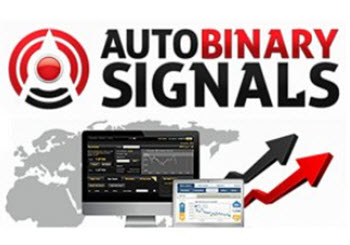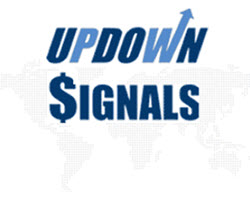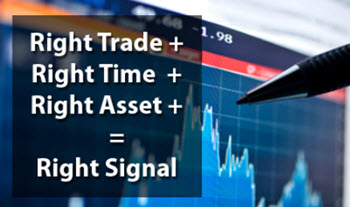Welcome to BinaryOptionsSignals.com (Or BoS for short). BoS is a website devoted to binary options signals and is designed to help prevent you from getting scammed when you trade using signals.
Binary options signals are notifications that alerts a trader to potentially profitable trades. Different signal providers offer different types of signals that are developed for different types of traders. Binary options signals makes it possible for a complete beginner to trade like a pro. You no longer have to analyze the markets. You can have a team of professional do that for you and you can make money trading on the opportunities they discover. We will help you find the best signal providers that suits your need and your budget.
| Win Rate | Assets | Frequence | Price | Rating | |
|---|---|---|---|---|---|
 |
70% | Currency pairs | 100 signals per day | $99/month | |
 |
80% | Currency pairs Stocks Indices |
2 - 5 | $97 One time fee |
|
 |
72,5% | currency pairs stocks incides |
6-12 | $97/month | |
 |
70-80% | Stocks Commodities Currency pairs |
2-4 | $97/month | |
 |
78% | Currency pairs Indices Commodities |
5 sent once a day |
$97/month $197 for 3 months |
|
 |
70% | Currency pairs | 1-3 | $99/month | |
 |
80% | Currency pairs | 2-4 | $194/month Live feed |
|
 |
Under Investigation | Currency pairs Indicies Stocks |
15 | $99/month |

Binary options signals are a very useful tool when used correctly. They allow you to become a successful trader from day one without having to spend hours every day analyzing market movements. They allow you to start trading tomorrow with the same opportunities to make money as anyone else. All you need to be able to use these signals is a brokerage account with a binary options broker that offer mobile trading. Mobil trading allow you to act on the signals whenever they are issued.
You success with binary options signal will vary depending on which signal provider you subscribe to, how high pay out rate your broker have (the higher the better) and how fatefully you follow the binary option signals. Always compare signal providers before you subscribe to a service. If you need help finding a good broker then i recommend binaryoptions.co.uk.
Many signal providers have a suggest amount that they recommend that you invest in each trade. You can choose to use another amount but should always stick to the same multiple on each trade. Signals will be less effective if you change the invested amount between trades.
You can read more about why you should use signals here.
Latest Guides
-

The Future of Binary Options Signals: Trends and Innovations
-

How to Use Trading Bots and Signal Software Effectively
-

The Importance of Backtesting Binary Options Signals Before Using Them
-

Scam Alerts: How to Spot Fake Binary Options Signal Providers
-

How to Integrate Binary Options Signals into Your Trading Strategy
-

Best Timeframes for Using Binary Options Signals
-

How Economic News and Events Impact Binary Options Signals
-

The Risks of Relying on Binary Options Signals Without Market Knowledge
Difference between binary options robots & signals?

Signals and robots are two tools that are often talked about at the same time. They are similar in nature but differ from each other in one very important regard.
- Binary Options signals provide you the information to trade on. You choose whether to trade on it or not.
- Binary Options Robots trades for you. You do not have to do anything and you do not get to choose whether to make each trade or not. They are done automatically.
Some robots will trade using signals from one or several different signal providers. Others will trade according to proprietary algorithms or information provided by the developer.
Robots make the trade very easy but give you where little control over your trades. Two important drawbacks to consider before you start using a trading robot is that they only work with some brokers and that you need to provide a third party access to your account for them to work. This is a security risk.
Different types of binary options signals
There are a large number of different types of signals. Below I am going to provide some more info about the most common types.
Live trading signals
These signals are provide together with a live stream of the analysts working. You can trade side by side with these devoted traders and you can learn how to become a better trader by looking at them when they work. What they do and how they do it. It is in many ways like a virtual internship with the added benefit that you can trade and earn money at the same time as you are learning to become a better trader.
Manual Trading Signals
These signals alerts you to trades that you can choose to do yourself. You have to choose which signals you want to act on and you have to place the order. These signals can be delivered in a number of ways including through email, social networks, private forums and text messages. This type of signals are manually reviewed and then manually sent out to you. They are not automated signals.
This type of signal are often accompanied by a lot of useful information that can help you learn more about TA and market analysis.
SMS Signals
SMS signals are just as the name suggest sent directly to your phone. They can be manually reviewed or automatically generated depending on which signal provider you use. SMS signals are usually sent as regular text messages which limits the amount of information they can provide. They are therefor usually limited to the necessary information. This type of signal might also include notifications about important financial news.
Copy trading signals
Copy trading signals are sent out to you in real time and is based on the trades made by other expert traders. This allows you to benefit from their expertise. ‘ There are a large number of different copy trading signal services available and some brokers provide you with the option to copy another traders trades automatically .
Autotrading Signals
This type of signal should perhaps more correctly be referred to as a type of robot because they will not only provide the signal but also place trades based on that signal automatically. This is very convenient but does not guarantee success. Trading software like this might end up loosing all your money. Automated binary options trading is only as good as the quality of the signals they are based on. It can be highly profitable if you choose a signal provider with a good trade record.
Automated signals
Automated signals are signals that are sent to you automatically (without human review) when market analyzing software find certain perceived opportunities in the market. These signal services can a very good way to be alerted about possible good trades but should not be acted on without prior analysis of your own. They tell you where to look but you have to check to see if the software is correct.
Aggregated signals
Aggregated binary options trading signals are signals where the signal provider aggregate and analyze the signals from a number of different providers. The best signals are then sent to you. Some providers will send you all trades recommended by a certain number of other providers while other will send you the signals they believe is most likely to end in the money.
How much do Binary options signals cost?
The price of binary options signals can vary greatly between different providers. Some of them are very cheap or even free. Other cost several hundred or even thousand a month. Most providers offer a monthly subscription service but there are a few companies that offer a one time fee. Providers that charge a monthly fee are generally better since they need to keep the signal quality high to keep their customers happy. They lose a lot of money if the customers ends their subscriptions.
Below you can get a general idea of the average price of different type of signals.
- Simple put/call signals usually cost about USD 100 a month. Most providers price themselves just under the 100 mark to seem more competitively priced. These providers provide simple signals that recommend call/put options with a predicted price at a predicted time.
- Complex signals have a lot larger price span. They can be rather expensive. Some high quality signal providers with a good reputation charge as much as USD 250 or more a month. Complex signals provide you with a prediction containing the market price of an asset at a given time. They allow you to chose which options to trade and allow you to make trades with binary options that have higher pay out ratios. This potentially higher pay out justifies the higher price if the signal quality is good.
- Live signals can vary a lot in price but are usually priced similar to the price of complex signals. These can offer great value if you have time to watch the streams.
Are they worth it?

Many traders see the high prices of Binary options trading signals and prefer to invest that money in binary options rather then signals. This is understandable but completely misses the point. Binary options give a very high return on your investments. How much you invest is not as important as how often the trades you do end up in the money. It does not take many trades to earn the cost of the signal if they help you become a better trader.
Lets look at a simplified example:
You invest USD25 in each binary option you buy and your broker has a pay out rate of 80%. This means that you earn USD20 every time an option mature in the money.
You consider subscribing to a signal service that cost USD99 a month and provide 4-7 signals a day. (on avarage). They have a success rate of 70%
You make 20 trades based on the signals
- 14 of these will end in the money and earn you = 280
- 7 of these will end out of the money and cost you = 175
Profit on 20 trades = 105 (280 – 175)
You have more then recouped your money in the first 20 trades. Considering 4 -7 binary options signals a day this should happen after 3-5 days. You have another 25 days or so left in the month to make more money from the signals. Signals can in other words be very profitable and might spot trades that you do not even if you are a skilled trader yourself.
Choosing a binary options signal service
Binary options trading is already risky enough without throwing your trust — and money — at some random signal service without doing your due diligence first. The internet is overflowing with signal service providers, including many that promise huge returns, 90% accuracy, or “secret insider strategies” that are somehow available to the public (for a fee) but still very secret and wildly profitable. Yeah, okay.
So, how do you cut through the noise and find something that actually works and is worth the money? Let’s talk about what really matters when picking a signal provider.
Learn the Basics Before Your Proceed
Using a signal service provider is typically marketed as the smart, low-effort, and low-risk way to become a profitable trader. Sounds appealing, right? The bitter truth is that you need to do your homework. If you don´t learn at least the basics about trading, how markets work, how binary options work, how trading signals can be generated, and so on, you are not in a good position to pick a binary options broker nor a signal service provider.
Knowledge is power, and there is a wide range of seedy businesses out there banking on you being too tired, too stressed, too busy, too overwhelmed, or (let´s be honest here) just too lazy to do your own homework. When you don´t know how things work, it is more difficult for you to see through their bullshit and walk away. They want you to see their fancy adds, get excited, and give them your money without putting much thought into it. They don´t want you to be a knowledgeable and critical consumer that won´t be taken in by buzzwords and bling-bling.
While doing your homework and learning the basics, you might even find out that binary options are not the right choice for you, your financial goals, and your risk-willingness. There are many different ways to gain exposure to the financial markets, and binary options definitely have their downsides – including the binary nature of a classic binary option. If you buy stocks for $1,000 outright, you can put in a stop-loss that will make the position close automatically if the price drops, limiting your loss. If you risk $1,000 on a binary option and your prediction turns out to be wrong, you lose the full amount – there is no stop-loss there to limit the risk. With a binary option, you either get paid or you lose the full amount.
If your only goal with using binary options and a signal service is to make money completely effortlessly, without doing any research first, you are most likely in for a rude awakening. We get it – life is though. You are probably juggling a cacophony of responsibilities already – work, education, family obligations, your own physical and mental health – just to mention a few – and the siren song of low-effort, low-risk money is just so appealing. But going into this field blindly, without learning the basics firsts, will set you up for failure.
While there are serious binary options brokers and signal service providers out there, it is – regrettably – a field that has become heavily infested with scammers. Binary options signal service providers are typically not licensed and actively supervised by strict financial authorities with strong trader protection, and this makes it extra important for traders to do the due diligence and weed out the fraudsters and the low-quality signal providers.

Who Are You Dealing With, Really?
You want to know who your signal provider is. Stay far away from any company or individual who is hiding behind anonymous usernames or burner email addresses. A company should be properly registered and you should be able to verify with the applicable company register that it actually exists. Also look for how long it has been in business, and if any major change has been registered lately, e.g. a change in controlling ownership.
Results and Transparency
If you can’t find real, live results — not just screenshots or cherry-picked trades — that’s a red flag right off the bat. You want a service that shows you full trade history, including wins, losses, and everything in between.
Nobody wins all the time. If a provider claims they do, they’re either lying or they’re using a “special definition” of winning that doesn’t mean what you think it does. Serious signal providers don’t just post winning trades and brag about “yesterday’s 100% hit rate.” They show full trade history, including the losing ones. They’re not afraid to admit when a strategy didn’t work out or when the market moved unpredictably. That’s because their credibility comes from consistency over time, not cherry-picked success stories.
Even better: look for services that share real-time or delayed performance logs. Some will even let you monitor signals before you subscribe — that’s gold. If a provider’s hiding behind vague claims like “over 90% success” but can’t show you data, walk away.
Don´t Believe in Empty Promises of Guaranteed Results
A serious signal service provider will not promise guaranteed results. You won’t hear talk of guaranteed 95% win rates or guaranteed profits. Instead, you’ll get realistic expectations. They’ll talk about probabilities, risk management, and drawdowns. You might hear a lot more about discipline and patience than about fast cars and passive income. That’s a good sign. Be very suspicious with anyone who tries to downplay risk and claims to be providing guarantees. If you use a signal service provider and lose a bunch of money, do you actually think they will honor their “warranty” and reimburse you? Even if (and it is not likely) you would manage to get your signal service subscription cost back, that would still be a cold comfort when you think about all the $$$$ you lost following shitty signals.
How Are The Signals Generated?
Ask how the signals are generated.
Are the generated by a human or by a software program (bot)? Both can work, but it matters.
- If it’s fully automated, using software, ask how it works. What indicators does it use? Is it based on momentum, trend-following, mean reversion, price action, or something else? Even if you’re not an expert programmer, you should understand the basic logic. If a signal bot is throwing out trades based on astrology or some secret algorithm they “can’t share for security reasons,” step away.
- If it’s a person or a team of traders who are creating the signals, who are they? Can you find interviews, videos, trading records, etc? What are their credentials? Are any of these humans willing to front the company / group and provide a name and face, or is everything super duper secret?
Clarity and Details
Are the signals clear and detailed? You are probably not very interested in paying for vague recommendations like “buy EUR/USD soon” or “market looks good for a put.” Instead, you need actual entries, timeframes, expiry instructions, and often some explanation of why the trade setup was chosen. It doesn’t have to be a full-blown analysis, but there should be logic behind every alert — not just gut feelings or guessing. Not all providers provide an explanation, but if they offer at least some reasoning, it is a big plus, as it means they might actually understand what they’re doing — and they’re not afraid to be questioned.
Also check timing compatibility. Some brokers have short expiry windows, others don’t. Some allow 15-second trades, others won’t go below a minute. Make sure your signal provider matches that. Otherwise, your trades will never line up — even if the signals are good.
Signal Delivery Method
This part’s easy to overlook, but the delivery method can make or break the service — especially in short-term binary options and quickly moving markets, where a few seconds can be the difference between profit and loss.
Are the signals sent by email, SMS, Telegram, or pushed directly into a broker’s platform? If there’s too much lag between signal and execution, the signal can become useless or even costly.
Consistency and Frequency
At the end of the day, trading signals don’t need to be perfect. They just need to be consistent and yield you a continuous profit over time. A service that gives 10–15 trades a week, with solid reasoning, clear instructions, and a steady win rate (say, 60–70%) is far more valuable than some hype group spitting out 50 random signals a day. More isn’t better. Better is better.
Also, what you’re looking for is a service that matches your trading rhythm without compromising quality. Some people want one good setup per day. Others want a flurry of fast signals. But if the quality drops as the quantity rises, you’re just gambling at that point.
Real providers want you to succeed because your success is what keeps you around. They build long-term relationships with traders, instead of living off the kick-backs paid by brokers as novice traders make their first deposit. If signals from a signal provider help you grow, you will stick with them, and that’s how reputable signal service providers stay in business. It’s a simple model, but one that requires real work, real results, and a lot of honesty.
Broker Compatibility
Seems obvious, but it gets overlooked all the time. If your signal service doesn’t work with your current broker, consider looking for one that does, provided that you have a good broker. Finding a reputable and trustworthy binary options broker is not easy, so don´t drop that account on a whim because you got mesmerized by a shiny signal service provider.
Some signal service providers will try to pressure you to sign up with one particular broker, or a small selection of brokers. That is a big warning sign. This signal service provider is probably not in business to provide high-quality signals; their true business model is actually to send new traders along to a broker and get a kick-back when you make your first deposit. To them, it does not matter if they send you low-quality signals, because it does not matter if you cancel your subscription – they have already earned a big, fat commission from the broker. In some cases, they might even get paid additional amounts if you lost money utilizing their low-quality signals. Remember: with binary options, your broker is also your counterpart in the trade. You are not buying and selling instruments on an open market populated by traders. Each time you lose money on a binary option, the broker gets that money. Each time you make a profit, it comes out of the broker´s pocket. Therefore, low-quality signals that make you lose money can be good news for the broker, especially if the broker is only in it for the short-haul and does not care much about client retention. When a signal service provider is part of a shady deal with a scammy broker, you’re not the customer. You’re the product.
Most legitimate trading signal services are broker-neutral. They might suggest a broker, or a handful of brokers, that works well with their timing or platform, but they won’t lock you in. They can make recommendations based on execution speed or expiry types, but the will not force you to use a sign-up link to get access. They can still provide a link, but it is not mandatory.
Customer Support
Here’s something people don’t think about until it’s too late: what happens if you have a problem?Does the signal provider answer emails? Do they respond on Telegram? Do they have real humans who’ll walk you through setup if something breaks? Can you get help in real time through a phone call or live chat? Will you be forced to make an expensive phone call to the other side of the world to get phone support?
Assume that things will go wrong, and that you will need customer support at some point. Signals stop, software breaks, accounts get blocked, etc. You don’t want to be ghosted the moment you need help.
Community
Is there a real community available where traders using this signal service can compare trades, ask questions, spot issues early, and so on? You’ll learn faster and can catch bad signals before they cost you money. Be way of groups that are controlled by the signal provider and where criticism may be censored and valuable posts removed.
Pricing
Some signal services are free. Some cost a few dollars a month. Others want $500 upfront.None of those prices automatically mean it’s good or bad. Some free groups really do share solid signals because they’re building reputation and funneling customers into a paid plan. And some expensive services are just dressed-up garbage. This is not a field where you can trust that “you get what you pay for”.
So forget the price for a second and look at value. Are the signals making you money, even after fees? That’s all that matters.
If a service that you are genuinely interested in offers a free trial — take it before you proceed. Just make sure it’s actually free and not just a trick to make you deposit money with their “preferred broker”.
Binary Options Signal Scams
Binary options have a poor reputation. Fast trades, fast results, and often, fast losses. Many countries have even banned binary options brokers from having retail clients (non-professional traders).
Binary options are, as highlighted by BinaryOptions.net, high-risk by nature, and many binary options brokers are shady. With that said, for many new traders, it’s not the market itself that burns them or even a shady broker — it’s the signal service providers that are targeting novice traders, promising to make everything safer and easier.
You’ve probably seen them. Telegram groups with thousands of followers. Flashy websites promising 90% win rates. Influencers on social media showing off their “trading lifestyle” with fast cars and bling-bling in Dubai, and urging you to sign up before spots run out.
Before you have anything to do with binary options, binary options brokers, and binary options brokers signal service providers, it is a really good idea to read up on common scams to make sure you can spot the common warning signs from a mile away – before you throw away any money or hand over your personal information to an identity theft ring.

Kickbacks From Brokers
You might think you are the client purchasing trading signals, but in some cases, you are the product being sold. The signal service provider exists only to lure you in and send you on to a broker – who will pay the provider a kick-back when you make your first deposit.
It usually works like this: a provider promises access to high-performing signals, but only if you register through a specific broker. You’re told to deposit a few hundred dollars and start using the signals. What they don’t mention is the kickback. These providers get paid by the broker as soon as you deposit. In some cases, they get a percentage of your deposit. In others, they earn based on how much you lose. Either way, once your money is in, their incentive to actually help you disappears. Sometimes, the signals dry up altogether. Sometimes they keep coming, but they’re vague, delayed, or downright terrible. Each time you make a loss, the broker profits – since that is how binary options work. If you try to withdraw any remaining funds in your account, it will turn out to be impossible. Your account is frozen. You have not fulfilled some vague requirement. You need to go through another KYC check and provide an endless amount of documentation. The broker is clearly stalling, and then they begin to outright ignore you. It’s a signal service setup designed to look helpful, but everything behind it is built to drain your account — not grow it.
It doesn’t matter how slick the presentation is. The second someone insists you use their broker link, you should assume there’s an affiliate deal behind it. That’s not automatically a scam, but it does mean their interests may not line up with yours. The key word here is insist. You are simply not allowed to sign up with this broker any other way if you want access to the signals.
Note: Trying to file a claim with the authorities when your broker refuses your withdrawal request might not amount to much if you are a retail trader (non-professional trader). Most of the stricter financial authorities around the world – the ones who really put resources into trader protection – have banned binary options brokers from permitting retail traders. Therefore, a vast majority of the binary options brokers you will encounter – and especially the ones who are in cahoots with shady signal service providers – are based in countries where they fall under the regulation of a lax financial authority. Many binary options brokers that still welcome retail traders are based in lax offshore locations, run complex ownership set ups, and have a history of freezing withdrawals or manipulating trade data without running into any legal trouble at all.
There are legit brokers and there are legit signal providers — but there are also plenty of bad apples out there.
How Social Proof Gets Manufactured
One of the most convincing parts of many scams is how “real” they feel. Thousands of followers, constant screenshots of winning trades, and streams of positive testimonials can make even the most cautious trader curious. But what you’re seeing is mostly fabricated. In many Telegram groups and Discord servers, the same person controls multiple fake accounts. Bots or dummy users post fake trades, thanks the admin for the “amazing win,” and ask pre-scripted questions to simulate engagement. The goal is to create the illusion of success and momentum. And it works, because people trust crowds.
Even trade screenshots can be faked. It’s not hard to edit a few numbers in a trading app or reuse winning trades from another source. In many cases, the scam victim will not realizethe shots were fake until they have fallen for the scam and already deposited, traded, and lost – or had their account frozen.
Target Audience
Many trading signal scams are deliberately designed to appeal to people without any prior trading experience – and they are especially good at piquing the interest of individuals who are a combination of inexperienced, hopeful, optimistic, and very eager to make money trading online. If you also, for whatever reasons, do not have the time, energy or patience to learn trading the hard way, you are even more likely to fall for these rosy promises of easy, low-effort, low-risk streams of income.
Binary options are known to be extra good at attracting suitable victims, since binary options in their very nature are especially appealing to inexperienced traders who like the seemingly easy concept of “win or lose” and the short time-frames. Most people don’t start trading binary options with a long-term strategy — they’re looking for a shortcut, a fast track, something that works right now, and signal service scams fits this urge very nicely.
When a signal provider shows up promising daily returns, zero experience needed, and a tight-knit “community of winners,” it hits all the right buttons. The scam is built on what we want to believe. That someone else figured it out, that they are willing to share this fool-proof solution with us, and that we just need to be smart enough and brave enough to jump on the train today and follow their lead to success.
Getting caught in one of these setups can feel humiliating. But the reality is that these scams are designed to trap and some of them are really clever. Also, even a normally skeptic person can go through a period of their life when they, due to a combination of reasons, is more likely to take a chance and throw caution to the wind. It is not a bad thing in itself to be curious, trusty and willing to try something new. It is just sad that fraudsters are exploiting these traits.
If it’s happened to you, it’s important to speak up. You may not get your money back, but you can still help build a case against the fraudsters.
- Report the scam to your payment provider. In some cases, you may be able to file a chargeback or dispute. It won’t always work, but silence guarantees they get away with it.
- Warn others in forums and groups.
- Even if you have used a foreign signal service provider and broker, file a report with your local financial authority or the police. In some cases, fraudsters actually take big risks and operate from within jurisdictions where the authorities are eager and willing to get to them. The financial authority might not be able to pull their licenses (since they are licensed offshore or not at all), but fraud is still criminal and the legal system can go after the individuals for that, if the case against them is strong enough.
Even more importantly, use the experience to become a better trader. Figure out when and why your guard was down, and how you can prevent similar things from happening to you again. Every mistake in trading is a tuition fee — painful, but sometimes the only way to really learn.
Identity Theft
When signal service scammers are in cahoots with fraudulent brokers, you risk losing more than just a signal service fee and your first deposit. Sadly, there are fraudsters out there that will pose as legitimate binary options brokers to obtain your personal details and use them for identity theft.
When looking at signal service providers and binary options brokers, it is tempting to think, why not take a chance? After all, if I pay $50 for a signal service package and then make a $100 first deposit, I can just walk away if things go bad. Worst case scenario, I have lost $150.
In many situations, this would be true – but not when you are dealing with criminals who carry out identity thefts. All reputable brokers will require you to verify your identity, to prevent money-laundering and other financial crimes. As a part of this process, you will typically be required to upload a photo of your national identity card (e.g. driver´s license or passport) to verify your identity, and also upload copies of utility bills for your address, or a bank statement showing your home address. All this is perfectly normal, and if you have traded online before, you know the drill. Unfortunately, so do the fraudsters. They know that if they pose as a broker, unsuspecting traders will give them all this information.
Scammers also know that brokers licensed by strict financial authorities – like the UK FCA, CySEC and ASIC – are no longer permitted to sell binary options to retail clients (non-professional clients). Therefore, retail clients who are still seeking out binary options brokers are not going to find any brokers licensed by strict authorities. Instead, these traders will have to risk it with a poorly regulated broker, and this makes it extra difficult for traders to sort the reputable brokers from the scammers. The stage is set for criminals who want to get their dirty little paws on your identity card and utility bills to use for their own schemes. They can either target you directly, or they can pose as you when they carry out scams against other victims, knowing full well that if the police or a financial authority start looking, trails will lead back to you – and not them. You are innocent, of course, but sorting out that legal mess can take quite some time and is something that is better avoided.
Examples of Red Flags
Many signal service scams tend to follow the same basic formula, even if the packaging looks different. Once you’ve seen a few, the patterns and warning signals become easier to spot.
- One of the clearest red flags is the over-the-top promises. You’ll see claims of 90% accuracy, risk-free or low-risk trades, or guarantees of doubling your money in a week. These numbers sound incredible because they are — and not in a good way. They’re pure fiction, used to hook people who are new, desperate, or just optimistic enough to believe that this time will be different. No trader — no matter how experienced — wins that often without taking on insane risk, and a trader taking on insane risk will not be long-term profitable. And no serious signal service provider will pretend otherwise.
- Another trick you’ll run into is the constant sense of urgency. Scammers love using countdown timers, “limited slots,” or made-up enrollment deadlines to rush you into signing up without thinking. It’s a classic pressure move and it is used by scammers in a variety of different fields. If a signal service provider is pushing you to act immediately or lose your chance forever, it’s not about helping you — it’s about closing the sale before you realize something’s off or have a chance to discuss it with someone who might ask a few critical questions.
- You should also be cautious any time a provider insists that you register with a specific broker through their personal referral link. That’s usually where their real money is coming from — not from helping you win trades, but from getting you to deposit cash. Some brokers pay these providers just for getting new accounts opened. Others pay based on your deposits and/or losses. Either way, that kind of setup guarantees they’re not acting in your best interest. A signal service provider recommending one or more brokers is not a deal-breaker in itself; the insistence is. If they seem more interested in sending you on to a specific broker than selling you their own product, their own product is just a lure and they are making their real money from broker commissions. They have no interest in providing a high-quality signal service, because that is not their business model.
- And then there’s the transparency — or lack of it. Scam services usually don’t show detailed trading records, and if they do, it’s just a cherry-picked handful of “winning” screenshots or fake screenshots. You won’t get any real history, no proof of long-term performance, and certainly no evidence that the signals were actually sent out before the market moved. Everything’s vague for a reason.’
- Finally, be wary of anonymity. If you can’t figure out who’s behind the service, where they’re based, or how to reach them outside of a Telegram group or WhatsApp chat, that’s a problem. A real trading business doesn’t need to hide. If there’s no name, no accountability, and no registered business that can be verified through the relevant business registry, you’re not dealing with a professional — you’re dealing with someone who plans to disappear the moment things go wrong.
If you spot even one of these red flags, it’s worth slowing down. If you see two or more? That’s your cue to walk away — fast. There’s no shortage of services out there, but the good ones don’t rely on panic, pressure, or promises that sound like they come from a movie.
This article was last updated on: September 19, 2025